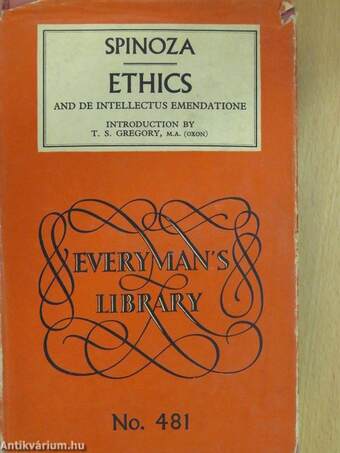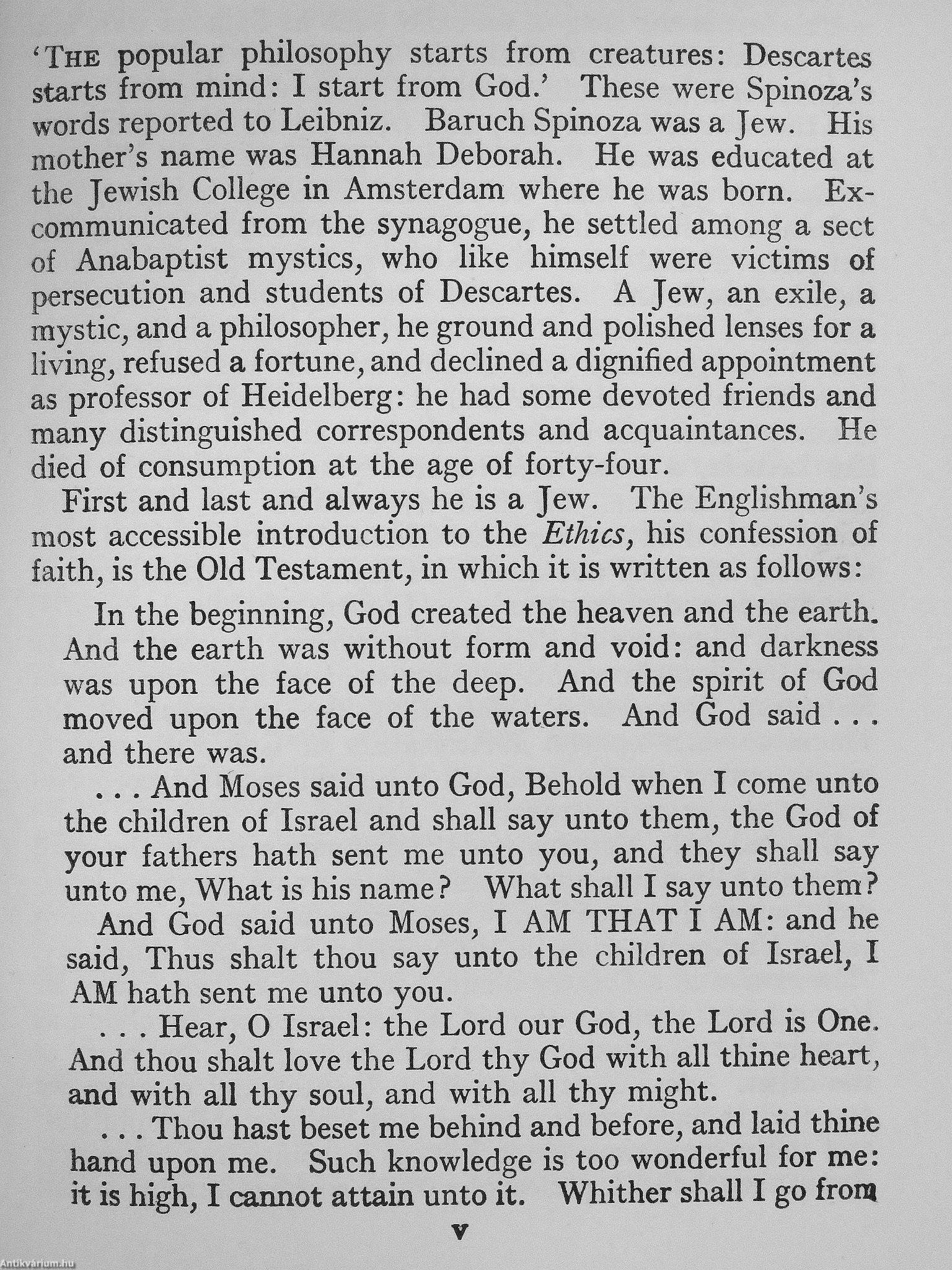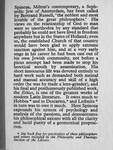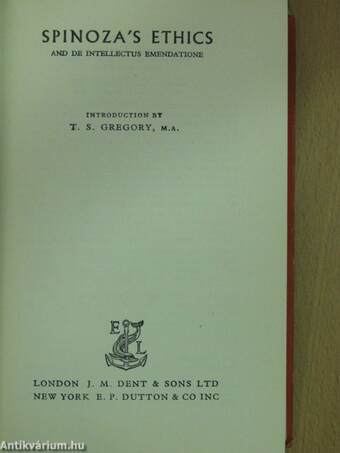1.067.358
kiadvánnyal nyújtjuk Magyarország legnagyobb antikvár könyv-kínálatát

VISSZA
A TETEJÉRE
JAVASLATOKÉszre-
vételek
Spinoza's Ethics and De Intellectus Emendatione
| Kiadó: | J. M. Dent & Sons Ltd.-E. P. Dutton & Co Inc |
|---|---|
| Kiadás helye: | London-New York |
| Kiadás éve: | |
| Kötés típusa: | Vászon |
| Oldalszám: | 267 oldal |
| Sorozatcím: | Everyman's Library - Theology & Philosophy |
| Kötetszám: | 481 |
| Nyelv: | Angol |
| Méret: | 19 cm x 12 cm |
| ISBN: | |
naponta értesítjük a beérkező friss
kiadványokról
naponta értesítjük a beérkező friss
kiadványokról
Előszó
TovábbFülszöveg
Spinoza, Milton's contemporary, a Seph-
ardic Jew of Amsterdam, has been called
by Bertrand Russell, * the noblest and most
lovable of the great philosophers.' His
views on the relationship of God to man
were so unorthodox by any standard that
probably he could not have lived in freedom
anywhere but in the States of Holland; even
so, the established Church of that country
would have been glad to apply extreme
sanction against him, and at a very early
stage in his career he had been cast out of
his own Jewish community, not before a
pious attempt had been made to stop his
heretical mouth by assassination. His
short innocuous life was devoted entirely to
hard work such as demanded both mental
and manual accuracy and skill of a high
order (he was by trade a lens-grinder), and
his final and posthumously published work,
the Ethics, is one of the greatest works of
modern Latin literature. It owes much to
Hobbes * and to Descartes,* and Leibnitz *
in turn was to... Tovább
Fülszöveg
Spinoza, Milton's contemporary, a Seph-
ardic Jew of Amsterdam, has been called
by Bertrand Russell, * the noblest and most
lovable of the great philosophers.' His
views on the relationship of God to man
were so unorthodox by any standard that
probably he could not have lived in freedom
anywhere but in the States of Holland; even
so, the established Church of that country
would have been glad to apply extreme
sanction against him, and at a very early
stage in his career he had been cast out of
his own Jewish community, not before a
pious attempt had been made to stop his
heretical mouth by assassination. His
short innocuous life was devoted entirely to
hard work such as demanded both mental
and manual accuracy and skill of a high
order (he was by trade a lens-grinder), and
his final and posthumously published work,
the Ethics, is one of the greatest works of
modern Latin literature. It owes much to
Hobbes * and to Descartes,* and Leibnitz *
in turn was to owe it much. Here Spinoza
expounds his system of psychology and
analysis of the passions, and demonstrates
his philosophical axioms with all the clarity
and lucid purity of a geometrical proposi-
tion.
* See back flap for particulars of these philosophers
and others included in the Philosophy and Theology
Section of the Library. Vissza
Témakörök
- Filozófia > Témaköre szerint > Ismeretelmélet
- Filozófia > Témaköre szerint > Etika
- Filozófia > A szerző származása szerint > Holland
- Idegennyelv > Idegennyelvű könyvek > Angol > Filozófia > Témaköre szerint > Ismeretelmélet
- Idegennyelv > Idegennyelvű könyvek > Angol > Filozófia > Témaköre szerint > Etika
- Idegennyelv > Idegennyelvű könyvek > Angol > Filozófia > Nemzetisége szerint > Holland
Baruch Spinoza
Baruch Spinoza műveinek az Antikvarium.hu-n kapható vagy előjegyezhető listáját itt tekintheti meg: Baruch Spinoza könyvek, művekMegvásárolható példányok
Nincs megvásárolható példány
A könyv összes megrendelhető példánya elfogyott. Ha kívánja, előjegyezheti a könyvet, és amint a könyv egy újabb példánya elérhető lesz, értesítjük.







